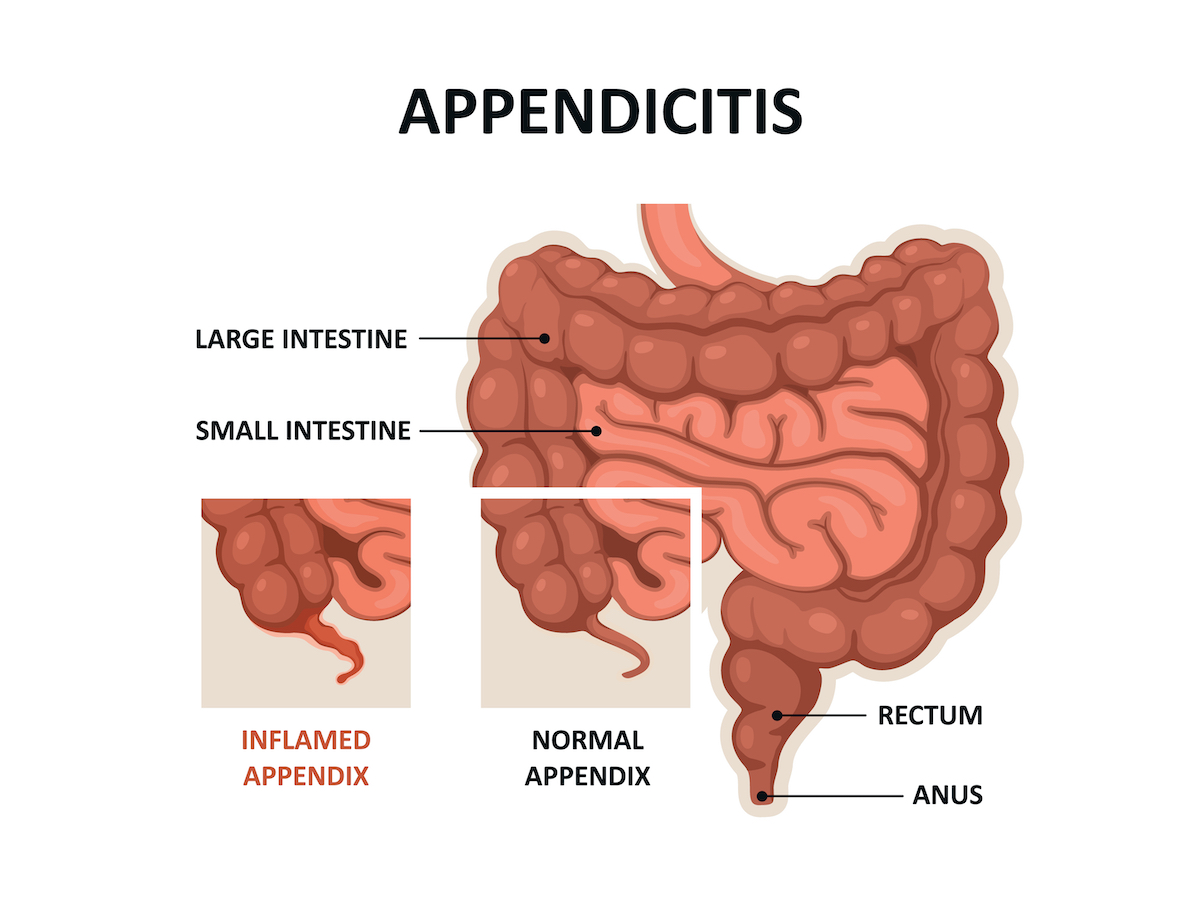We have all heard of appendicitis or know someone who has suffered from it. About 5% to 9% of Americans suffer from this condition, making it a common abdominal condition. The big question is: what is this condition, and is it life-threatening? Is there a way someone can recognize he or she is having appendicitis, and what should you do if you think you suffer from it?

What Is Appendicitis?
This abdominal disorder is an inflammation or infection of a piece of the colon, called the appendix. The appendix can be found on the lower right side of the abdomen – where the large and small intestines connect – and is a finger-sized tube. The medical world is still not sure what causes appendicitis, but they do know that de following factors increase the risk of getting an inflamed appendix:
- Trauma or injury to the abdomen
- Blockage(s) at the opening of the appendix where it connects with the intestines
- Digestive tract infection
- Inflammatory bowel disease
- Growths inside the appendix
These blockages can be caused by different things. Think poop, cancer, or something that doesn’t belong in the body at all. In addition, teenagers and young adults – people between 10 and 30 years old – are most likely to develop appendicitis. This is not a set rule, appendicitis can happen at any age, so even if you are still in preschool or if you live in a retirement home.
Are There Any Complications?
The appendix had no known function for the digestive system or any other part of the body, but it can get inflamed or infected. Once it does, someone needs immediate treatment. Untreated appendicitis can get serious to life-threatening complications. One of these complications – and probably the most common one – is called Peritonitis. Also referred to as a ruptured appendix. If the appendix ruptures, the infection spreads through the abdomen, and this can have disastrous consequences, like sepsis, if not treated right away.
Unfortunately, there are no ways to prevent appendicitis. However, the medical community does suspect that people who consume a lot of fiber are less likely to have this condition. Examples of high-fiber products are fresh fruit & vegetables, oatmeal, lentils & other beans, nuts, and popcorn. Mind you, this is a conjecture, so there is still a chance that even if you eat a lot of these types of products, you will get appendicitis. This is why it is important to know what the warning signs of this condition are and what the next steps are.

Warning Signs of Appendicitis
Recognizing appendicitis can be a challenge as most symptoms, can be warning signs of many conditions, like kidney stones and gallbladder problems. The best way to recognize this condition is (a sharp) pain in the lower abdomen on the right side or a pain that starts around the navel and moves downward. Often this is also one of the first symptoms, so remember this well. Other symptoms of appendicitis include:
- Loss of appetite
- Nausea & vomiting after the pain starts
- Swollen belly
- Fever of 99-102 F
- Not being able to pass gas
Less common symptoms include pain anywhere in the upper abdomen, back, or rear end, difficulty & experiencing pain during peeing, vomiting before the belly pain starts, severe cramps, and constipation or diarrhea with gas.
Treatment Options for Appendicitis
If you recognize these symptoms it’s important to immediately see your professional healthcare professional or visit an emergency room. The sooner a diagnosis is made and treatment initiated, the lower the chance of complications and irreversible damage. The diagnosis of appendicitis is based on several tests. These tests include physical examination, urine test, rectal exam, blood test, and ultrasound. Once the diagnosis is made, the only treatment option is to take antibiotics. And/or to surgically remove the appendix – also called an appendectomy. Fortunately, you can live a perfect life without your appendix. For more information on this condition, the appendix, and if there are ways to prevent appendicitis, continue your online search here:

